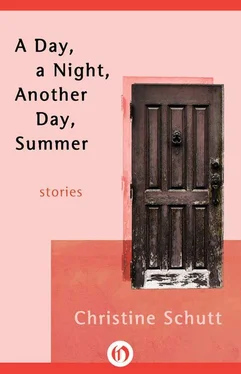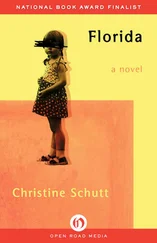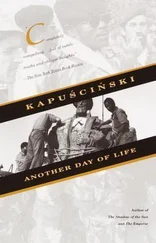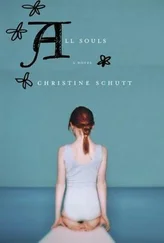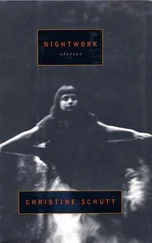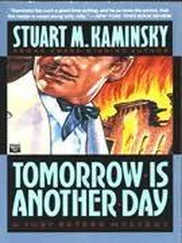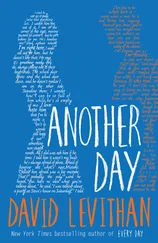To me she confided how she missed seeing other people, simply people passing, strangers whose stories she liked to make up; and when she thought there was no one but us now to know her own story, she was sad.
I was a son. The island, I knew, would not always be my home — even if my sisters never married and pursued eccentric crafts, I would not come back to act as the stunted bachelor brother. My aim was to…well, I couldn’t see an end exactly. The ordinary world we had left behind looked far away. The ordinary world from the islands highest point hung at a watery distance like laundry, like cold-smelling and sun-smelling coarse cloth. No harbor mess of lobster traps and low-tide stinks from here. From here, where I went sometimes for the view, I saw what we had left and what I could go back to.
Imagined blocks in fall’s whetted light, fall’s winds, a new smell, school.
But it was August. The island was hushed, and the pond where we swam was turned to scum. My sisters sulked. “Daddy,” they said, “don’t make us.” I had no choice but to ease off the bank and into the water as example to my sisters, who yet resisted, saying, “He’s a boy, Daddy, please don’t make us.”
The intoxicant of swimming, swimming, swimming, swimming, swimming, swimming, swimming ! Alone, afar, adrift from my family and Father shouting from the shore made me wonder at the submerged and muffled experience of water, which was also the experience of my age — fourteen. I might sign on board if a boat passed near enough, I might explore the mainland.
I saw my oldest sister’s sex in sudden passing, a hairless white hardness and a dark slot. I saw her and touched myself and was not ashamed. The island conspired to sex us; the leaves, torn, milked, and there was hissing. The stones’ soft shapes marked and swashed by rising water — rising water itself — ferns unfurling, teary gums and oozes from the trees, slimes, foams, the sweat that fell from Mother’s face when she was bent to anything…all, all of it aroused me. My sister, the oldest, yet not so old but that she wandered in undress, made me want to hurt her. What would she feel like to squeeze?
The skin on her arm when I twisted it was hairless and cool, and I could feel the bone in her arm, whereas the youngest’s arms were all flesh. The youngest was easier to drag; her hip bones knocked against the stones; and she bumped along the length I dragged her; yet she liked to be dragged — they both did — and spooked and swung around and chased and carried. Piggybacked and given up to jouncing, the oldest sagged the reins by which she held me; and she leaned back and looked up and in a clip-clopped voice noised her pleasure at the sky. So this was childish play, and I was aroused, and I kissed her.
She said, “What are you doing?”
“Act like someone else,” I told her, and she didn’t move when I touched her but stayed on her back and still.
The fog descended on the island, and the wind came up, and there was lightning where we lived. Our father died. Rain, rain, rain runneling down a mud slide, our father stuck and drowned. Mother made a spoon of her fingers and scooped mud from his eyes.
I begged against his ear to breathe.
My sisters cried.
On the cliff side of the island Mother beat me nearly deaf. “There are goats if that’s your purpose,” she shouted.
“But what is my purpose?” I asked, and I was mad in pain and sick and Mother said at first she didn’t know what and then she did. “Why not stay here and people the island?” she asked. “Why not fuck me?”
USED TO BE EVEN in the rain we walked hooded in water-repellent bicolor suits that swished and sounded as if we were fat when we were thin, both of us, Margaret and I, and only walking for the routine and the way it felt, hands free, holding nothing. Children, leashes — my first husband — we left even the dogs sleeping to meet each other at the entrance to the park marked by the great elm, that folktale tree with its house-wide trunk sprung green. We meet there still although not as often — and no more in the rain.
No more in the morning either, but in the afternoon when we are certain of the weather and the light, then we walk. We take the bridle path where the low, gnarled cherries cut the cutting wind off the reservoir. In spring the wind undoes the blossoms, and they snow on us; but in winter the stripped cherries are all black trunk and hugely tumored. Last winter Margaret asked that we avoid them, and we did. We took the road and went south beneath the sycamores. The sycamore, or plane tree, as my husband calls it, is a true city tree and seems always in autumnal leaf somehow, not yet exhausted, not yet stripped. Nothing, I think, not even the scarlet oak, Thoreau's favorite, can exceed the sycamore’s assertive seriousness and grace, but my husband prefers the ginkgoes.
Margaret does not have a husband anymore to poll for his favorites — if he ever had favorites, trees that is, which I doubt. “A man,” Thoreau says, “sees only what concerns him,” and Margaret’s husband has always been concerned with just himself. He does not write to or see his children. Not even when his grandson was born did the man think to call his daughter. His absence in the lives of his son and daughter has worried Margaret on our walks. She says, “I wish he would see them.”
I start to say, but Margaret says, “I know what you’re going to say — and thank you, really, I mean it.”
We are in October, one of the great man’s months, March being the other, and because I aspire to see as purely as Thoreau did, I read the essays at night and bring him with me on our walks. I like to think it cheers Margaret, and she says it does, although she says a lot of things, I think, to make me happy. Today, for example, when we meet at the elm, I see she stands unsteady in a wind that is quite gentle; yet when I ask her if she would rather not walk, she says, “No, no, no, I’m hoping to see something red. I’m ready.”
There is little of red on our walks; the city mostly yellows. The ginkgoes are especially good at this. The fans that are their leaves never brown but turn, at the same instant, a like yellow. The trees look like matches, evenly planted, erect, and alight down the street. My husband admires them and is saddened, as am I, when the late rains thrash them from their branches.
But the ginkgoes have just begun to turn; we are not so far in the season, and Margaret and I have time, have weeks, I hope, to seek the reds, the sumac and the serviceberry, the flush of burning bush against the blue water when the water is blue and hard to look at in the afternoon angles of the sun. Near to the tennis courts and the north water station and the bridge this happens: the bridle path widens and rubbles and is hard to walk, so we turn onto the grassy swell and lean against the peeled trunk of a sycamore. We stop walking so that Margaret can catch her breath, and then it is we squint west, southwest across the water.
The reservoir wholly bright hurts memory enough to make a viewer weep, but Margaret — amazing woman that she is — doesn’t. She looks at the water while I cry, not loudly, of course, not even a lot of sniffle, just the eyes wet but distorting and coloring the white water so that I don’t see water but rather our collective past, Margaret’s and mine; I see the afternoons we have spent together. Those days we shoved onto the rocky paths with our children strapped in strollers that sometimes stopped short with our cargo nearly thrown against the stones we would drive over. We bumped over curbs, too, recklessly, the way young wives do with their health so casually assumed, wagging bags of it shouldered loosely. In our neighborhood, Margaret’s and mine, the bills fly for the simplest meals, although as young wives we made elaborate dinners, by the book, especially planned, costly. Parties these were, dinner parties for our young husbands and the other young husbands and wives from whom we hoped to gain — what?
Читать дальше
